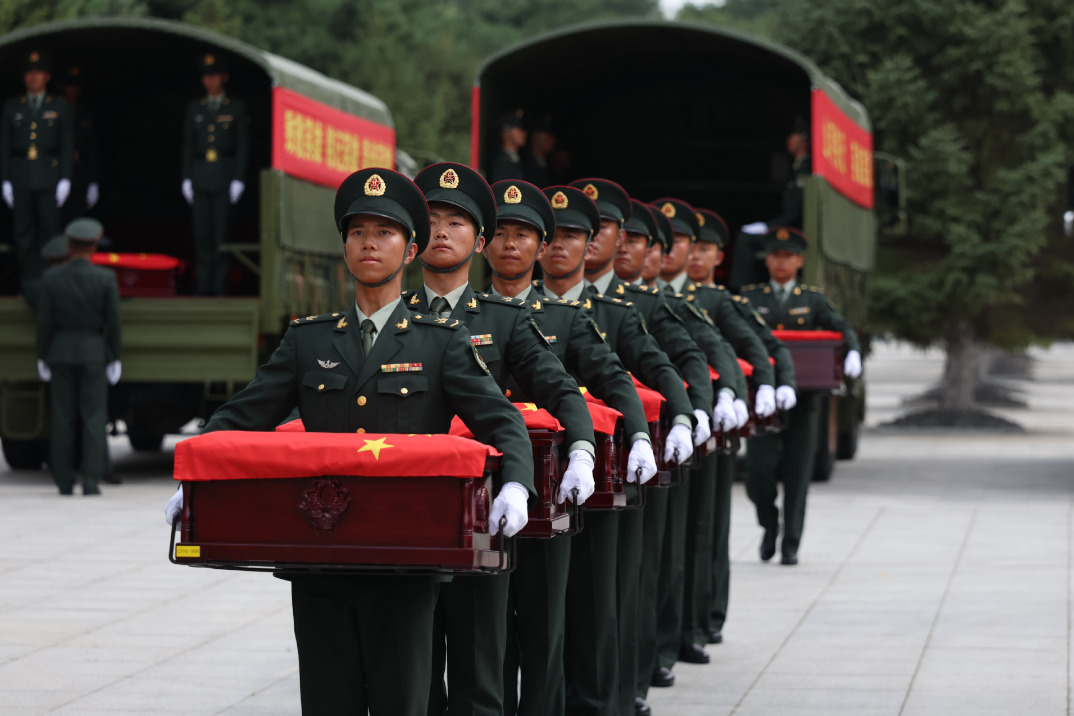Stronger international partnerships needed to repair world's economy

China and Spain are expected to deepen their business ties in trade, investment and beyond to add growth momentum to both sides and inject positive energy into the global economic recovery, according to market watchers and business leaders.
Propelled by the tangible development of the Belt and Road Initiative and Spain's latest policy measures to boost its economy, the two sides will likely scale up trade and investment in fields like the digital economy, "new infrastructure", clean energy, food safety and high technology, they said.
Unlike traditional infrastructure such as railways, roads and waterworks, the concept of "new infrastructure" refers to critical facilities based on information technologies like 5G, artificial intelligence, the industrial internet and the internet of things. IoT describes networks of devices that can connect and exchange data.
As this year marks the 50th anniversary of the establishment of diplomatic relations between Spain and China, the two could jointly cultivate new drivers for development to help themselves and the world economy to achieve strong, green and healthy development in the next stage, said Zhao Ping, deputy head of the Academy of China Council for the Promotion of International Trade.
China and Spain share much common ground in policies that boost the economy, and promote investment and trade exchanges, especially in the areas of infrastructure development, trade in services, high-end manufacturing, environmental protection, energy storage and conservation, said Ma Yu, a researcher at the Chinese Academy of International Trade and Economic Cooperation in Beijing.
The value of trade between China and Spain amounted to $51.51 billion in 2022, up 6.5 percent on a year-on-year basis, data from China's General Administration of Customs showed.
China exports mainly raw materials, computers, telecommunication equipment, trucks, plastic and rubber products, textiles, garments and household appliances to the Iberian country.
In addition to agricultural products, chemical goods, water treatment and medical equipment, the European country's shipments to China include minerals, mechanical goods, transport materials, fossil fuels, tobacco, car parts, cosmetics and fashion products.
Fang Qiuchen, president of Beijing-based China International Contractors Association, suggested both countries explore third-party markets — as well as multilateral cooperation with Spanish-speaking countries — and deepen cooperation in such areas as agriculture, infrastructure and auto manufacturing in countries across North and Latin America.
Empresarios Agrupados and Ghesa Ingenieria y Tecnologia, two Spain-based international subsidiaries of China Power Engineering Consulting Group Co, or CPECC, signed a strategic framework agreement with a Chinese partner to jointly conduct engineering services in Mexico in November.
Under this agreement, the two Spain-based companies will provide survey and engineering services for a 346-megawatt internal combustion engine power plant project in Mexico. The two companies were acquired by CPECC, a subsidiary of Beijing-based China Energy Engineering Corp, in 2020.
"These moves have opened a brand-new world for our businesses to better connect with both Chinese and foreign companies to develop projects across the world, especially in markets related to the Belt and Road Initiative," said Javier Perea, managing director and CEO of Empresarios Agrupados.
Zhang Yongjun, a researcher at the Beijing-based China Center for International Economic Exchanges, said China and Spain have room to enhance cooperation on multiple fronts, expand common interests and play their respective roles, ensuring the stability of international industrial and supply chains.
The Chinese government and business communities have expressed willingness on various occasions to work with Spain to organize the 2023 China-Spain Year of Culture and Tourism to enhance mutual understanding and friendship between their people, Zhang said.
Eager to expand its market presence in Spain, Chinese tech heavyweight Alibaba launched an e-commerce platform named Miravia in December to grab a bigger share of the local midrange to high-end consumption market.
The products sold on the platform mainly feature Spanish and other European brands across a wide range of categories, such as beauty, fashion, personal care, electronics, foodstuffs, infant products and healthcare, said the Chinese company.

Today's Top News
- Aid program must return to its roots
- UN Security Council slams deadly strikes in Qatar
- Trump to meet Qatari PM in New York
- China, US to hold trade talks in Spain
- New aircraft carrier sails into S. China Sea for tests
- Nation honors fallen soldiers returned from South Korea






























